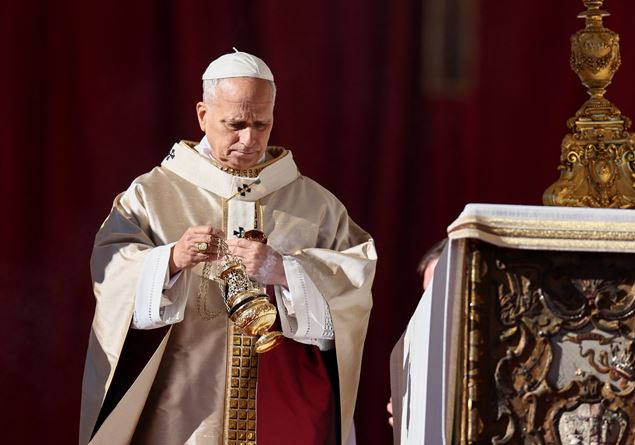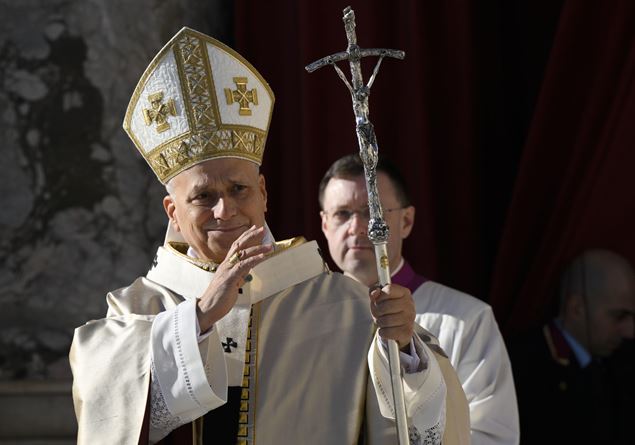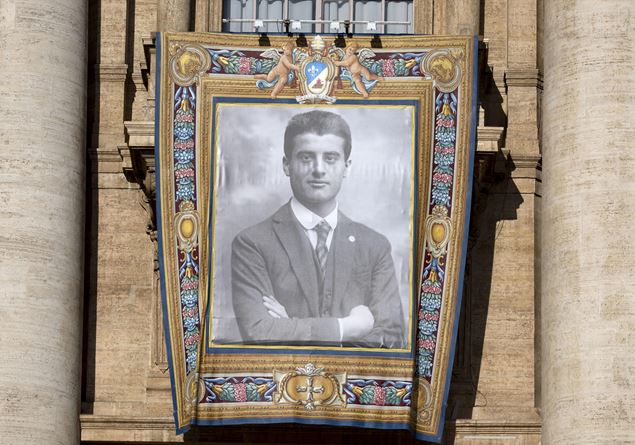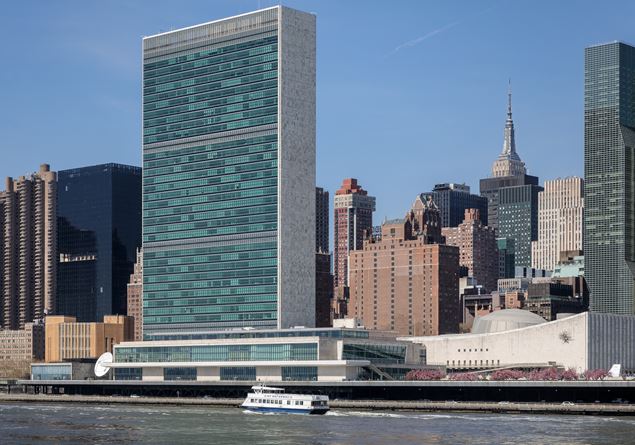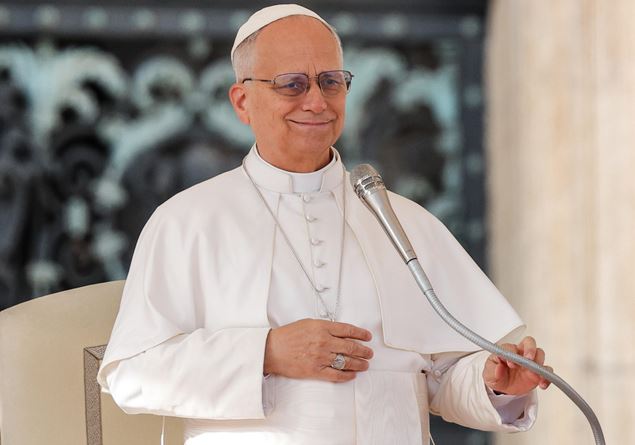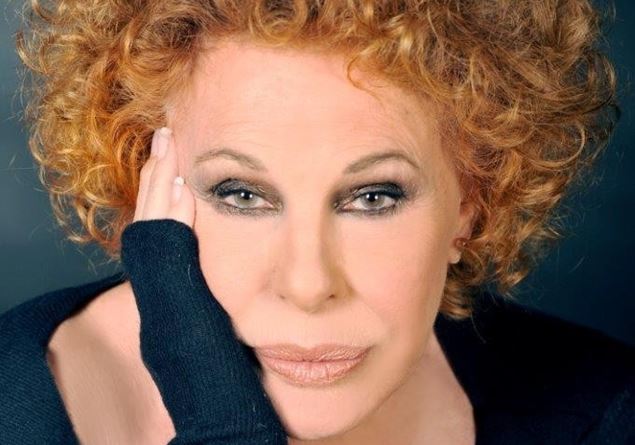Sandro Calvani.
Eighty years after its birth, the UN seems a tired giant, often ignored by the powerful and powerless in the face of the massacres in Gaza or Russian aggression in Ukraine. Yet there are those who, after a life spent within the United Nations, continue to believe in their original mission: to build peace and defend human dignity. Sandro Calvanidiplomat, economist and university professor, among the most authoritative Italian experts on international cooperation, is one of them. For over thirty years he has directed programs of the UN and other global agencies in Asia, Africa and Latin America, dealing with human development, the fight against poverty, justice and drug trafficking. Today he is a consultant for international organizations and the author of numerous essays on the future of global governance. He is also president of the Scientific Council of the G. Toniolo Institute of the Catholic University for International Peace Law. For readers who wish to delve deeper into the topics covered in the interview, two of his recent books are useful: Without False Frontiers(AVE 2021) e Protopia (New City, 2025). With him we retraced the history and challenges of the Glass Palace, from its birth in 1945 to the crises of the present, between wars, sovereignism and new hopes for peace.
The United Nations seems to have lost much of its authority and prestige in the face of the old and rising powers, as seen in the Gaza affair.
«For eighty years the United Nations – as should be clear in its name – has been an association of nations that wish to be united for the good of all. Therefore, like any group dynamic in the world, they function to the same extent that members respect the rules they have set for themselves. Attributing its weakness to the UN system is like disqualifying the game of Monopoly, poker, football or a condominium simply because some of the members do not respect the rules.”
Despite numerous complaints, commission reports and the definition of genocide, the Israeli government has never been stopped, thanks to the support of the United States.
«On the most burning issues of the moment, for example, human rights, Palestine, Ukraine and drug trafficking, in recent decades less than a dozen governments have decided to do their own thing, not caring about the rules decided together and signed, and not respecting the will and resolutions voted by another 150 or 160 countries that have chosen the right solution. Those countries that abandon inclusion, law and diplomacy are hiding behind their asserted popular will or need for “national security”. In reality, they call it suprematism “my country comes first”, or sovereignism “we don’t take orders from other countries”, but they are forms of racism and imperialism. In the face of bullies, at least we should all agree to call facts by their name. Those who renounce the truth must know that justice and peace cannot exist in falsehood.”
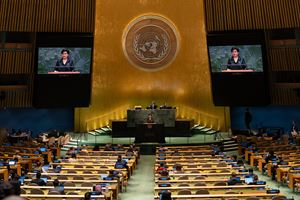
Even UN justice seems to be canceled out by the arrogance of the powers, starting with the USA and Israel. Although there are very strict orders from the International Court of Justice. Are we witnessing the end of international law, which is increasingly respected?
«International law remains present and authoritative because no one has yet proposed a better structure. But it must be recognized that the effectiveness of his authority is being reduced because the bullies, instead of respecting the referees, want to forcefully reject impartial decisions. Instead of accepting warnings and expulsions, they expel the referees. If one or more nations deny genocide, climate change, the effectiveness of vaccines, human rights, gender and migration rights, they do not change the facts, they only hide them and make the governance of global commons impossible.”
The new world balances – with the growth of powers such as China, India and Putin’s Russia – are changing the internal structures of the Glass Palace. Is a real reform of the organization imaginable?
«The UN Assembly 2025 voted by an overwhelming majority in favor of the proposed reform, resulting from over a decade of consultations, called UN80. Italy has made a great contribution to this path of transformation. The new UN that will be born in 2025 has shed many of the signs of its old age. But the challenge remains the same as stated at the beginning: the goodwill of the member countries. The countries that oppose and cancel their funding, after two years of such sterile and destructive opposition, will lose the right to vote, just like in a condominium assembly.”
You have worked in the field for years, including in the UN programs against poverty and drugs. In your opinion, which are the United Nations agencies that really function today and which ones survive only due to bureaucratic inertia?
«The most effective UN programs and specialized agencies were those that had within them a great consensus, participation and good will of member countries, such as the WHO, the FAO, the International Organization for Migration, humanitarian programs such as the World Food Programme, Unicef, UNHCR. Together these programs have freed billions of people from poverty, ignorance and disease, who today in their countries are very grateful to the UN system for saving them.”
As a former high-ranking UN official, do you think real change is possible, or will the victorious powers of 1945 continue to block any evolution? In a fragmented world, where nationalism and indifference are growing, what remains of the original spirit of the San Francisco Charter? Is it still possible to believe in the United Nations as the “conscience of the world”?
«Contrary to the aspirations of the UN Charter of San Francisco, hyper-market and hypo-democracies are creating an era of hyper-conflict. But eight billion people certainly have a collective intelligence and a sense of common humanity, which manifest themselves in the revival of information, education and active citizenship networks for the common good throughout the world to overcome hyper-conflicts. Especially in Asia, which alone has more population and more resources than the rest of the world combined, we can glimpse a new desire for dialogue and tolerance. The new generations are aware of the devastating impact of the inequality of wealth, power and opportunities that a few hyper-capitalists would like to consolidate in order to govern the future of humanity on their own and to their advantage. But thanks to modern technologies and the disruptive power of authenticity and brotherhood, the founding ideas for a future of hyper-democracy have already been conceived and articulated in humanist and solidarity commitments, signed by religions and scientists.”
Are you optimistic about the future of the Glass Palace?
«The conscience and hope of the world can be temporarily repressed even with great abuse of millions of people; but they cannot be turned off definitively; they are always reborn in the daily commitment of billions of human beings. I saw them at work on the streets of the peripheries of the world. Their hope and conscience to unite the destinies of nations in a future of peace, development and justice can be seen on the faces of billions of children. They all smile in the same language; that smile is the new UN flag, it will win with the same spirit of Saint Francis, that of Assisi, not just that of California.”
